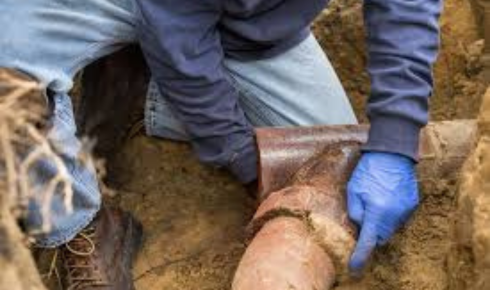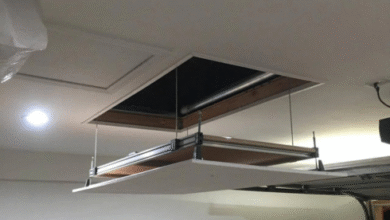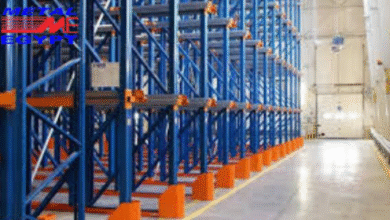Preventing Common Drain and Sewer Issues at Home

Table of Contents
- Understanding Common Causes of Drain and Sewer Issues
- Proper Waste Disposal Practices
- Regular Maintenance and Inspections
- Landscaping Considerations
- Installing Preventive Devices
- Being Mindful of Water Pressure
- Educating Household Members
- Seeking Professional Assistance
Maintaining the health of your home’s plumbing system is crucial for ensuring a safe and comfortable living environment. Untreated drain and sewer issues don’t just lead to frustration – they can result in costly repairs, property damage, and potential health hazards. Fortunately, homeowners can proactively manage most plumbing risks by adopting proper habits and paying regular attention. Whether you’re learning to identify early warning signs or seeking trusted pipe repair Corona, CA, this comprehensive guide covers everything you need to enjoy worry-free drains and sewers.
It’s essential to recognize that prevention is most effective when it becomes a routine part of household maintenance. By implementing best practices and staying vigilant to changes in plumbing performance, you can significantly reduce the likelihood of major plumbing disruptions. Not only does this save money in the long run, but it also helps safeguard your property and family.
Understanding Common Causes of Drain and Sewer Issues
Several problems can impede the flow of wastewater in your home. The most common issues include:
- Clogs: Blockages often form when grease, hair, soap scum, or non-flushable items build up inside pipes, restricting water flow.
- Tree Root Intrusion: Roots are naturally attracted to the moisture in sewer lines; over time, they can infiltrate, break, or clog pipes.
- Aging Pipes: Older plumbing is particularly susceptible to corrosion, shifting, and cracking, which can lead to leaks and backups.
- Heavy Rainfall: When stormwater overwhelms municipal systems, sewer lines can back up, flooding homes with wastewater.
Being aware of these potential threats is the first step toward preventing emergencies and maintaining clear lines of communication. For in-depth solutions and repairs, always consult a reputable resource such as Homes & Gardens for general plumbing advice. Staying proactive through routine inspections and timely maintenance can make all the difference in preventing severe damage. By addressing minor issues promptly, homeowners can safeguard their property and prevent costly repairs in the future.
Proper Waste Disposal Practices
The way you dispose of everyday waste has a significant impact on the health of your pipes and sewers. To avoid common blockages, follow these essential practices:
- Avoid Pouring Grease Down Drains: Grease and fat can solidify after cooling, narrowing or completely blocking pipes. Instead, collect cooled grease in a separate container and dispose of it with your household trash.
- Flush Only Toilet Paper: Items such as wipes (including “flushable” wipes), paper towels, dental floss, and feminine products break down slowly or not at all, increasing the risk of sewer blockages.
- Use Drain Strainers: Simple devices like sink and shower strainers can capture hair and food scraps before they cause trouble further down the line.
Regular Maintenance and Inspections
Routine attention to your plumbing systems can uncover minor issues before they disrupt your home. To ensure your drains and sewers remain problem-free:
- Schedule Professional Inspections: Annual checks by a licensed plumber can detect hidden problems, such as blocked vents, cracks, or invasive tree roots, before they become more severe.
- Clean Drains Regularly: Instead of using caustic chemicals, opt for natural cleaners like baking soda and vinegar to keep pipes clear and free from buildup.
- Monitor Water Flow: Pay attention to slow drains and gurgling sounds, which may signal developing clogs or venting issues.
Landscaping Considerations
Your outdoor choices are just as crucial for protecting your sewer lines as your indoor habits. To prevent root infiltration and soil disruption:
- Plant Trees Away from Sewer Lines: It’s best to plant trees at least 10 feet from any known sewer lines to minimize root intrusion risks.
- Install Root Barriers: Physical root barriers can help direct tree growth away from your underground plumbing.
- Regularly Maintain Landscaping: Keeping trees and shrubs pruned in the vicinity of pipes reduces the likelihood of roots seeking out moisture from small leaks or condensation.
Installing Preventive Devices
Specialized plumbing equipment can help your home resist backups and water damage during heavy storms or system overloads:
- Backwater Valves: These one-way valves stop sewage from flowing backward into your home if the main sewer line becomes overloaded. Have a licensed plumber install and inspect them regularly for best results.
- Sump Pumps: Especially in basements or areas prone to flooding, a sump pump can divert excess water and relieve pressure on your sewer lines, helping to prevent backups.
Being Mindful of Water Pressure
While intense water pressure might feel convenient, excessive pressure places stress on pipes and joints, increasing the risk of splits or bursts. To prevent pressure-related plumbing problems:
- Check Water Pressure Regularly: Use a simple pressure gauge (available at most hardware stores) to measure your home’s water pressure. Ideal ranges are typically between 40 and 60 psi.
- Install a Pressure Regulator: If readings are outside the safe range, a professionally installed regulator can protect your entire plumbing system.
Educating Household Members
Everyone sharing your home should understand the basics of plumbing care. Prevent expensive or inconvenient issues by ensuring that all household members:
- Discuss What Not to Flush: Review the items that should never be flushed down the toilet or drain.
- Encourage Prompt Reporting: Ensure that everyone knows to report early signs of blockage, such as slow drains or unusual sounds, so problems can be addressed before they escalate.
Seeking Professional Assistance
DIY fixes may address minor issues, but for persistent or recurring drain and sewer problems, professional help is a must. Schedule regular checkups with plumbing experts who can offer comprehensive services, diagnose hidden problems, and implement solutions that guarantee long-lasting performance.
When signs such as water backing up, foul odors, or repeated clogs appear, don’t wait—swift intervention keeps repair costs manageable and protects your property from greater harm. Relying on trained professionals ensures that repairs are handled efficiently, safely, and in accordance with local codes.
With consistent attention and responsible habits, you can keep your drains clear and your sewer lines operating smoothly for years to come. Proactive maintenance and timely repairs are key to a comfortable, safe, and worry-free home environment.




